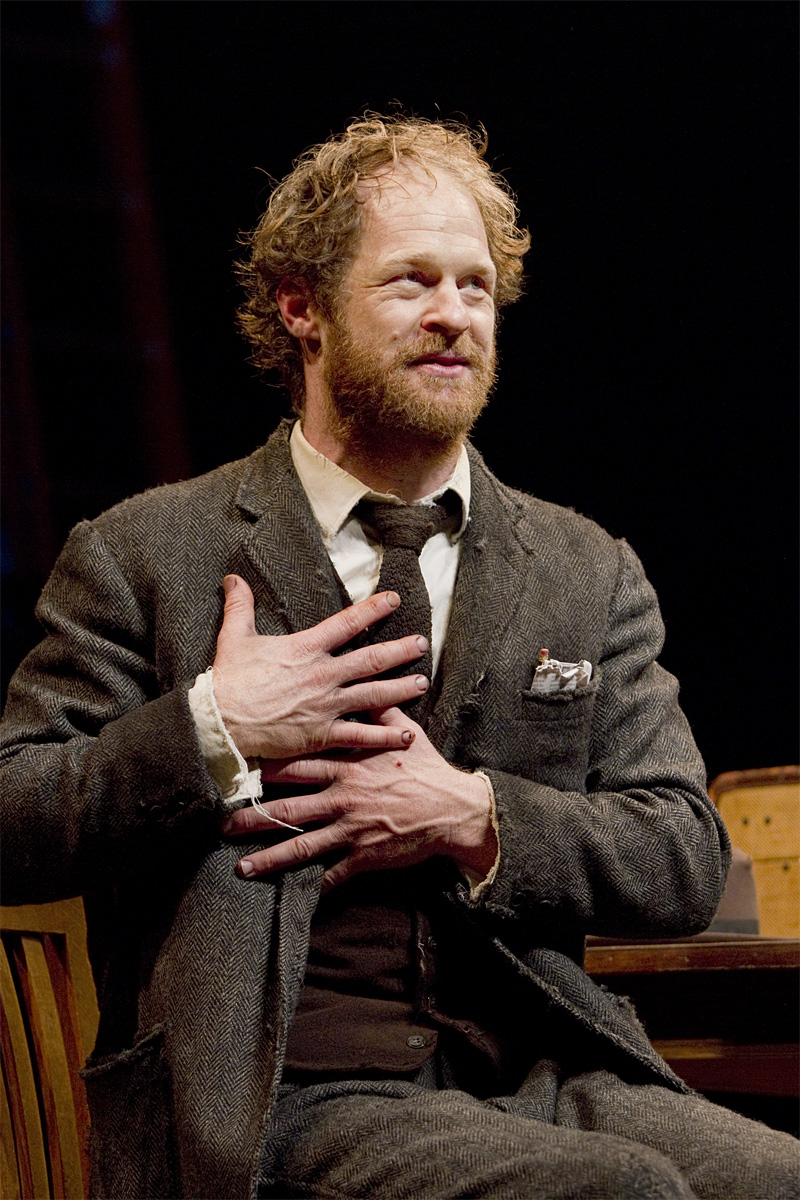You know how it is when you’re stuck on a plane next to a big talker, and little bits of what he’s saying are interesting, but he gets bogged down in too many details; and when he sees your eyes glaze over, he desperately makes the story bigger and louder to hold your attention? Sorry to say, but that’s what An Iliad feels like. Lithe, downy-bearded Hans Altwies couldn’t be a more sympathetic, appealing, articulate narrator as “the poet,” but I don’t go to theater to be lectured. Not that co-creators Denis O’Hare and Lisa Peterson don’t build in some humorous sidebars, paraphrases, and dramatic recreations of Homer’s epic tale of the Trojan War. Yet even these seem to perch on preachy, obvious “war is hell” substrata. (The Tony-winning actor O’Hare was originally set to star in this premiere, but got called away to do a Twilight sequel. Peterson directs the show.)
An eternal figure (Homer’s spirit, maybe), the poet has been repeating his story for millennia. Dressed in a vintage wool suit, he brags about “concerts” in Alexandria, Mycenae, Babylon. “You know where it went down well?” he asks. “Gaul.” Such folksy asides bind the quilt—largely a series of excerpts from The Iliad—as he relates the ancient saga to modern times. Why do men fight? “Helen’s been stolen, and the Greeks have to get her back.” (The poet then imagines how Hector and Achilles might’ve instead settled their grudge over beers.)
But what with all the myriad gods, demigods, factions, loyalties, plagues, etc., The Iliad is a rather complicated story to follow—and to stage without a sword-waving cast of thousands. During the 90-minute one-act, Altwies strolls around the stage, sits at the table, drinks, takes off his boots, and occasionally ascends a ladder to deliver a dramatic recitation.
By the time we get to Achilles mutilating the body of Trojan hero Hector, the poet narrates how Hector’s dad, Priam, comes to ask for the corpse, and both warriors weep about their losses. Powerful stuff, and timeless, too. (You could envision the same scene today in Iraq or Afghanistan.) But not as told by the poet; it’s just another song for his supper.
A passive, forlorn depressiveness characterizes too much of An Iliad. When the poet finally recites a five-minute laundry list of wars throughout history, it sounds like a coach’s numbing, postgame citation of every fumbled ball. Altwies looks at us as if we’d done the fumbling. Only the Greeks didn’t vote for Agamemnon to lead them into war. Homer’s Iliad chronicles the gods, fates, great men, and their follies. An Iliad merely stands on its didactic ladder, trying to tell us what it all means.








